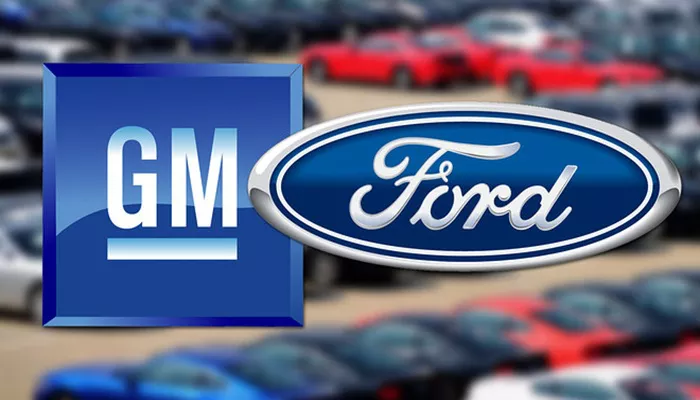General Motors and Ford Motor Co. leaders have assured employees and investors that the companies are working to manage the effects of the 25% tariffs on imported autos and auto parts imposed by President Donald Trump. These tariffs, set to take effect on Thursday, are expected to impact both automakers, even though they are financially strong.
In internal communications obtained by the Detroit Free Press, both companies emphasized their readiness to face the challenges posed by the tariffs. While acknowledging the potential disruption, the messages reassured employees that the companies are taking steps to adapt to the changes.
GM and Ford Respond to Tariff Changes
A memo sent to GM employees on March 27, one day after the tariff announcement, highlighted the anticipated effect on the company’s manufacturing and supply chain. GM, which imports many parts for its U.S.-made vehicles, emphasized its commitment to supporting a strong U.S. auto industry. However, the memo did not specify the exact impact of the tariffs. GM leadership stated they had been planning for such challenges and were ready to remain agile in response to the new tariffs.
Ford’s CEO, Jim Farley, sent a similar message to employees on the same day, acknowledging the potential impact of the tariffs on the company’s operations. While Ford manufactures nearly 80% of the vehicles it sells in the U.S., Farley warned that the tariffs could still have a significant impact on costs. He assured employees that Ford was engaging with the Trump administration and policymakers in various countries to address the issue.
Ford and GM Leaders Urge Employees to Focus on Their Work
Both GM and Ford are advising employees to remain focused on their roles and maintain discipline in company spending during this uncertain period. GM’s memo emphasized that the company is identifying specific risks associated with the tariffs and working to address them efficiently.
Ford’s message similarly urged employees to stay committed to delivering high-quality vehicles while managing costs. Farley noted that, like in previous crises such as the COVID-19 pandemic and the chip shortage, Ford would work closely with its dealers and suppliers to navigate the situation.
Bill Ford’s Reassurance to Investors
Ford Executive Chairman Bill Ford recently reassured investors that the company is “well-positioned” to handle economic and political uncertainties, including the impact of the tariffs. In a filing with the U.S. Securities and Exchange Commission, he emphasized Ford’s commitment to improving quality and cost efficiency. He also acknowledged the challenges posed by new competitors, particularly from China, and geopolitical uncertainties but expressed confidence that Ford would navigate these disruptions successfully.
Last-Minute Appeals to the White House
In the days leading up to Trump’s executive order, both Bill Ford and GM CEO Mary Barra made last-minute appeals to the White House in an attempt to mitigate the effects of the tariffs on their companies. Despite their efforts, Trump signed the executive order, which has caused concern in the auto industry. Analysts warn that the tariffs could lead to higher prices for vehicles and disrupt the global supply chain, as both GM and Ford rely on parts imported from countries like Mexico and Canada.
The uncertainty surrounding the tariffs has raised concerns about potential retaliatory measures from other countries, which could negatively affect the global demand for U.S.-made vehicles.
Industry Outlook and Concerns
The auto industry remains on edge as the tariffs take effect. Industry experts predict that automakers and suppliers could face significant cost increases, potentially driving up vehicle prices by as much as $5,000 to $10,000. Both GM and Ford have emphasized the need for careful management of costs to avoid passing these increases on to consumers.
As the situation evolves, Ford and GM continue to monitor the impact of the tariffs, with both companies focused on ensuring their long-term success and competitiveness in the global market.

